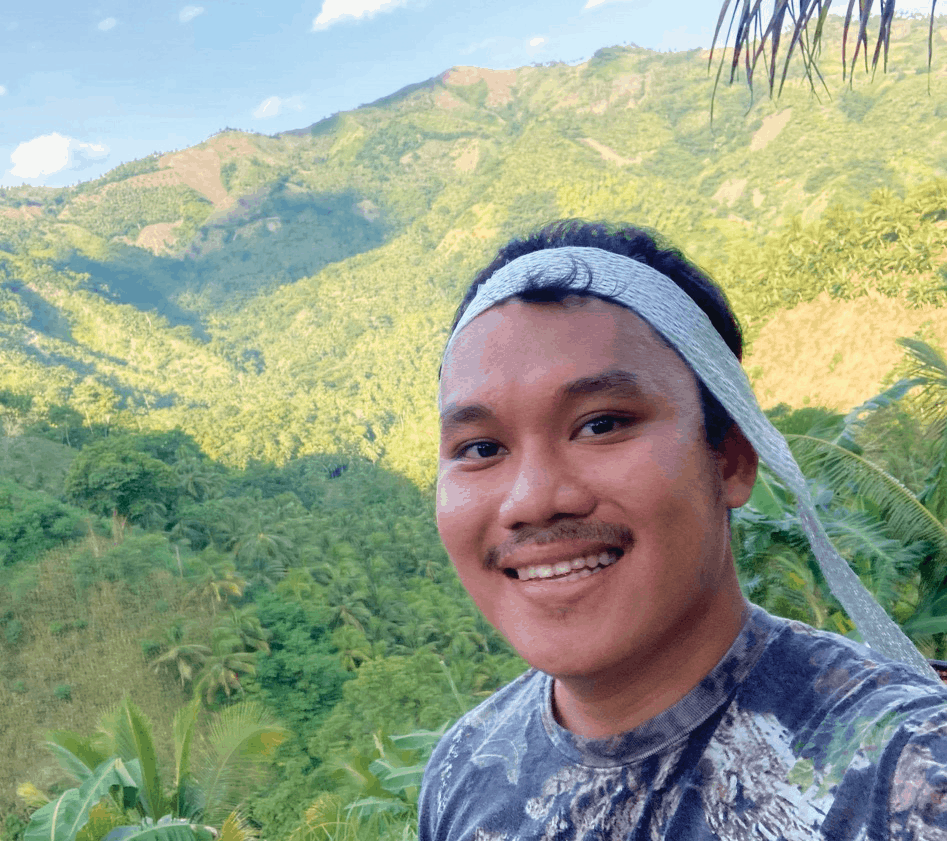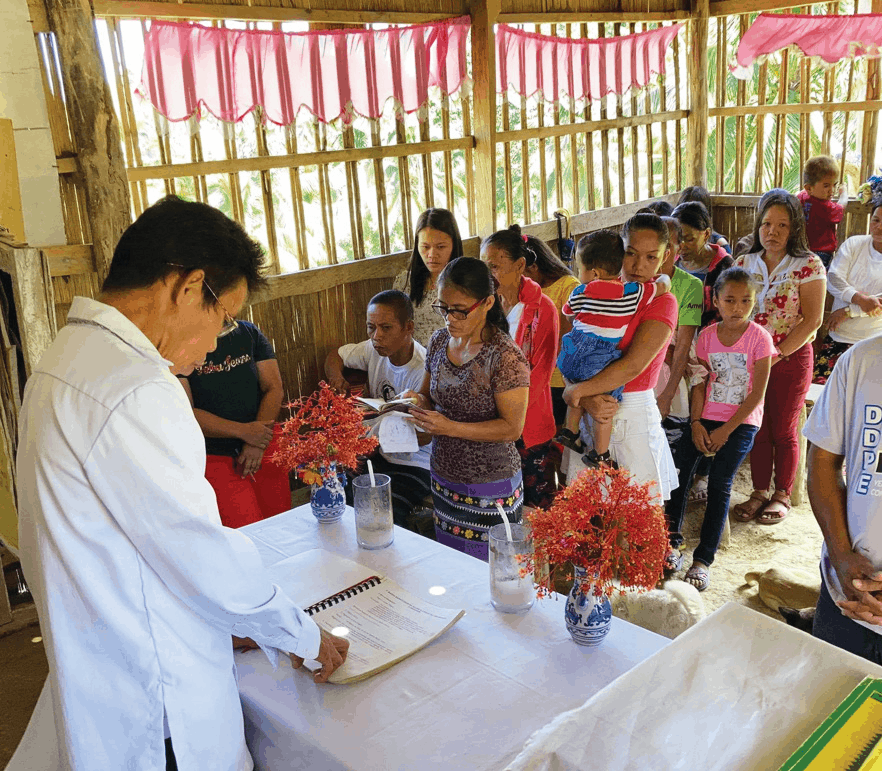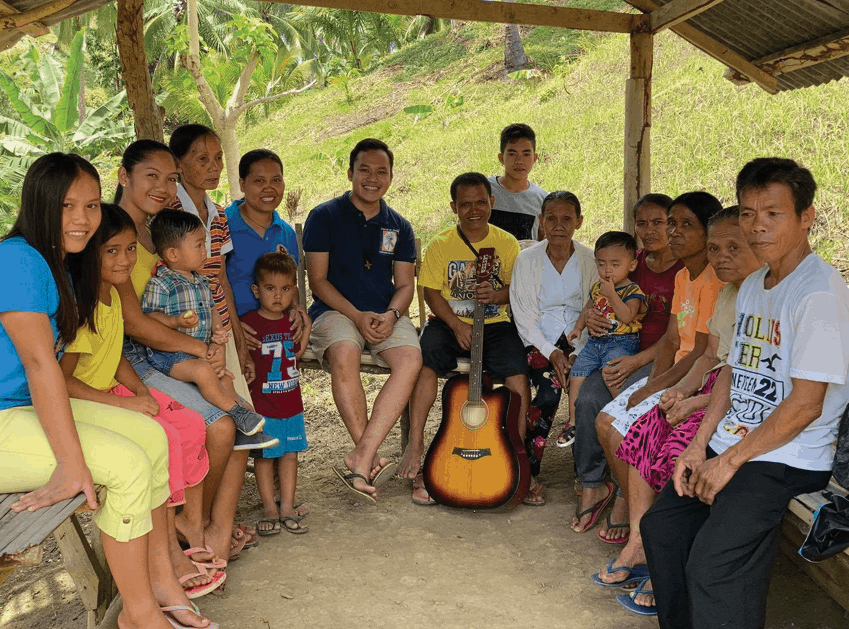
I felt my heart beating fast. I came back to the Diocese in Digos, in Mindanao, after spending a few months with three other seminarians at the Focolare’s Center of Spirituality for Priests and Seminarians in Tagaytay. I was still there when I received the program that my Bishop had thought of for me before my ordination to the priesthood, which he had set before the end of this year. Part of this plan was an “immersion program” in a remote area in the mountains with an indigenous tribe, a “basic ecclesial community” of the Tagakaulo tribe of Malita, Davao Occidental. Soon after, the departure day for that place finally arrived for me and another seminarian.
While going up the mountain, many fears started coming to my mind. I imagined the difficulties and discomforts I would be encountering. For the first time, I would be living in a place I am not familiar with, a distant place, where I knew no one. And yet, love for Jesus abandoned on the cross, which was instilled in me during my stay with the Focolare in Tagaytay chased away these fears. Jesus was telling me to believe in his great love, reminding me that this experience would only be a chance to love him.
It took almost two hours of habal-habal (one-passenger motorcycle taxi) ride from the parish to the place of the Tagakaulo. The road was rough, and the rains only made them worse for travel. From time to time, we would walk, then ride again, and later, walk again. I only brought a few things: my rubber slippers (typical Filipino flip-flops), my breviary, rosary, cellphone and charger, and some clothes. I was imagining what my life would be in the days ahead with no electricity and running water.

Finally, we reached the place and headed towards the chapel where a handful of the community was at the door to welcome us. I immediately felt their openness and loving acceptance. The fears I had started to melt away. Their warmth and simplicity enveloped us. The homes surrounding the chapel all belong to a single clan, although some members of the Christian family come from other families. We were taken care of by two families. I immediately felt the warm welcome of the members of the family and, immediately, there was a rapport among us.
The primary source of sustenance and livelihood of this tribe is their land. Here, I learned how to see, through them, the value and importance of preserving their ancestral lands. In the following days, I traveled many hills and mountains within the area just to visit many Christian families. Their hospitality was exceptional, and there were times when I stayed overnight in their homes because they insisted on me. For them, priests, religious, and all those from the diocese are people who belong to God. They all look up to us as people who are holy – an honor, a sign of hope and help for them – a reverential attitude based on their early experience with missionaries and diocesan priests who started and built their Christian communities.
From then on, beautiful experiences unfolded, leading me to understand and love my new brothers and sisters in this indigenous community. I thanked God that, in following his will, he gave me the community of the Tagakaulos. Their presence as an indigenous people is a precious and valuable reality in the local Church. They are an inestimable treasure in our diocese. A conviction arose in me: We must take pride in them and do our part to preserve their cultural heritage and ancestral domains.

Tagakaulo tribe.
As the days went by, their hospitality continued to touch me deeply. Never did they ignore me whenever I started sharing my life experiences or my thoughts. On my last days with them, they kept asking when I would come back and live with them again. It was a moving moment of unity, confirming how they have really treated me as one of them, and perhaps, with God’s grace, I was able to lose myself in them that they felt I had become part of the tribe. There I touched the reality of Jesus present among us, he who made us all one family.
The “immersion” period came to its end, and we had to leave that wonderful community in the mountains. I must admit that I’m missing their native coffee made from corn grains and coffee beans brewed together, the native chicken with its distinctive taste which I was always served in every house I visited, not to mention the sweet potato that was always available in the nearby crop garden. But most of all, I am missing all the beautiful encounters I had with the people of the tribe, listening intently to their stories and experiences, their lights and shadows, the joys that they shared with their families, and the sorrows and difficulties in relationships that are always part of the challenge to be a united community.
I will always have at heart this period in my life. “This will be the people I will be ministering to in the future as a priest” is a thought that has remained in me. I will never forget that, for more than two weeks, I had lived with my Tagakaulo brothers and sisters in unity, not imposing my own preferences, not even imposing Christian doctrine on them, but simply living with them. If they felt that our presence had been a gift, I experienced, in the end, that I was even more enriched by them. With joy, I felt that Jesus was telling me that these are his people, so they are my people too.
Leonard Rabuya




